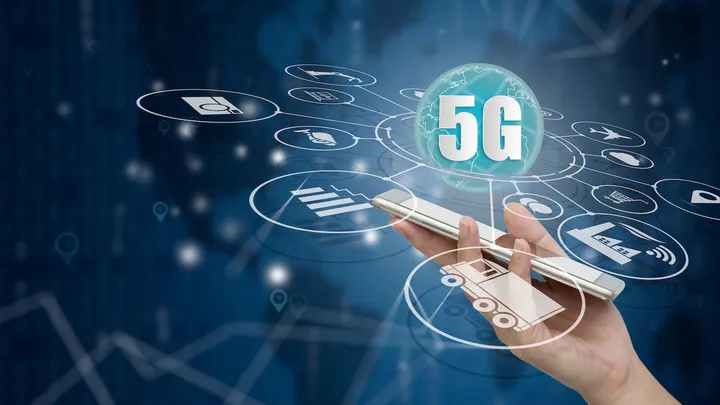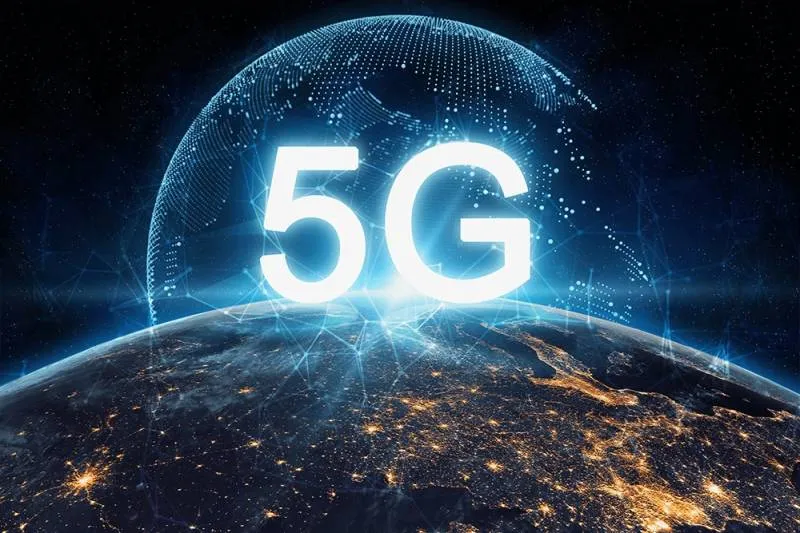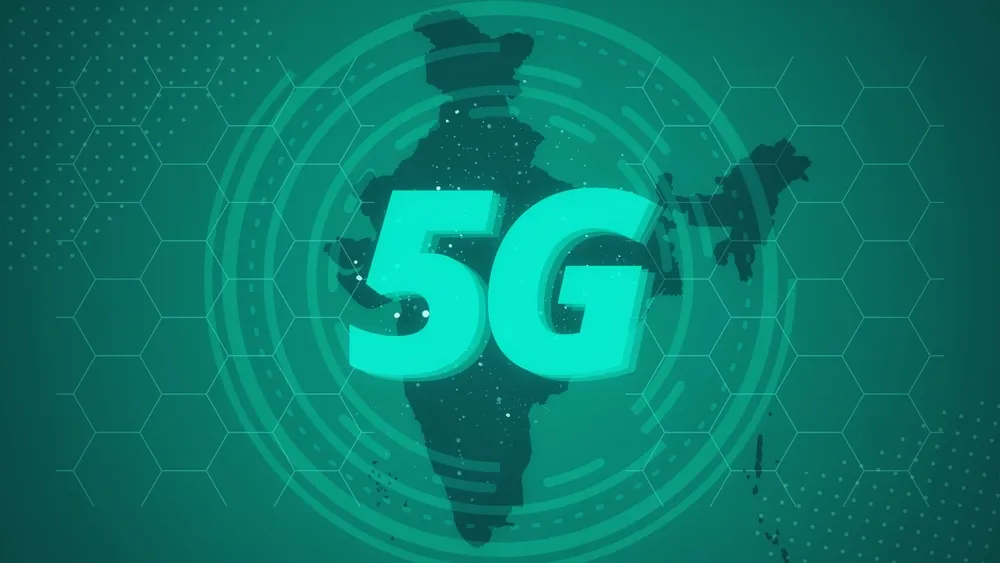The dawn of 5G technology is set to transform Pakistan’s digital landscape, with the federal government aiming for a nationwide rollout by June 2025. This leap forward is not just about faster internet; it’s about revolutionizing industries, bridging the digital divide, and empowering millions of Pakistanis to thrive in a connected world. With the framework for the 5G spectrum auction finalized, Pakistan is gearing up for a brighter, tech-driven future. But what does this mean for the average citizen? Let’s delve into the details of this transformative journey.

What is 5G, and Why Does It Matter?
5G, the fifth generation of mobile networks, represents a paradigm shift in connectivity. Unlike its predecessors, 5G offers:
- Lightning-Fast Speeds: Download speeds up to 100 times faster than 4G.
- Ultra-Low Latency: Near-instantaneous response times, critical for real-time applications.
- Massive Connectivity: Seamless communication for billions of devices, from smartphones to IoT gadgets.
For Pakistan, 5G is more than a technological upgrade—it’s an enabler of economic growth, innovation, and societal progress. By fostering industries such as agriculture, healthcare, education, and e-commerce, 5G has the potential to reshape lives and drive the nation towards a digital future.

The Roadmap to 5G in Pakistan
The journey to 5G deployment is carefully planned to ensure success. The Ministry of IT has outlined a detailed roadmap:
Spectrum Auction:
Scheduled to begin in February 2025, the auction will unfold in five phases.
The Pakistan Telecommunication Authority (PTA) will auction four spectrum bands: 700 MHz, 2300 MHz, 2600 MHz, and 3500 MHz.
Policy Reforms:
By March 2025, the Advisory Committee will finalize spectrum pricing and commercial terms.
Policy directives are set for approval by April 2025.
Infrastructure Development:
Telecom companies will invest in upgrading networks and enhancing coverage.
Partnerships with global vendors and local tech firms will accelerate the rollout.
Nationwide Rollout:
Commercial 5G services will launch by June 2025, bringing advanced connectivity to urban and rural areas alike.

Opportunities with 5G in Pakistan
1. Bridging the Digital Divide
Pakistan’s rural areas often lack reliable internet access. With 5G, even remote villages can enjoy high-speed connectivity, empowering farmers, students, and small businesses. Imagine a student in Gilgit attending a virtual lecture or a farmer in Tharparkar accessing weather data to plan their harvest.
2. Revolutionizing Healthcare
Telemedicine will reach new heights with 5G. Doctors can conduct real-time consultations, monitor patients remotely, and even perform surgeries with robotic assistance. For millions lacking access to quality healthcare, this could be a game-changer.
3. Empowering Education
Virtual classrooms and augmented reality-based learning tools will become accessible, leveling the playing field for students across Pakistan. Rural schools will gain access to the same resources as urban institutions, fostering equality in education.
4. Fostering Economic Growth
5G will supercharge industries like e-commerce, logistics, and fintech. Entrepreneurs can leverage its capabilities to expand globally, while real-time data will enable businesses to operate more efficiently. The ripple effect on the economy will be profound.
5. Supporting Emerging Technologies
From smart cities to autonomous vehicles, 5G will be the backbone for innovation. It will enable the widespread adoption of AI, IoT, and big data analytics, driving Pakistan into the era of Industry 4.0.
6. Enhancing Entertainment
For consumers, 5G will redefine entertainment. Streaming high-definition content, engaging in immersive virtual reality experiences, and seamless online gaming will become the norm. This will also pave the way for local content creators to reach wider audiences.
7. Empowering Women Entrepreneurs
Access to high-speed internet can empower women entrepreneurs in remote areas, enabling them to market their products online and participate in the digital economy. Initiatives to train women in using 5G technology could significantly reduce gender disparities in tech-driven industries.

Challenges in 5G Deployment
Despite its promise, rolling out 5G in Pakistan faces hurdles:
Infrastructure Gaps:
Existing networks require substantial upgrades.
Power shortages and inconsistent electricity supply could hinder deployment.
High Costs:
The expense of spectrum acquisition and infrastructure development may lead to high service charges, limiting affordability.
Digital Literacy:
Many citizens lack the skills needed to leverage 5G’s potential.
Awareness campaigns and training programs are essential.
Cybersecurity Risks:
Greater connectivity brings increased vulnerability to cyber threats. Robust security frameworks must be in place.
Geopolitical and Regulatory Challenges:
International partnerships may face hurdles due to geopolitical tensions, affecting equipment procurement and deployment timelines.

Real Stories: Aspirations and Expectations
Ali, the Innovative Farmer
Ali, a farmer in Punjab, dreams of using technology to enhance his yield. With 5G, he plans to adopt smart sensors for monitoring soil health and irrigation, ensuring optimal crop growth.
Sara, the Aspiring Doctor
Sara, a medical student in Karachi, envisions leveraging 5G for telemedicine. She aims to connect with global experts and bring advanced medical practices to underserved communities in Pakistan.
Startups on the Rise
Tech startups like Bykea and Airlift see 5G as a catalyst for innovation. Enhanced connectivity will allow them to improve services, expand operations, and compete on a global scale.
Education Dreams Realized
Ayesha, a student in rural Balochistan, hopes 5G will enable her to attend online classes without interruptions. Her dream of becoming an engineer could finally become a reality with better access to resources.
FAQs About 5G in Pakistan
Q1: When will 5G launch in Pakistan?
The nationwide rollout is expected in June 2025.
Q2: Which spectrum bands are being auctioned?
The PTA will auction 700 MHz, 2300 MHz, 2600 MHz, and 3500 MHz bands.
Q3: How will 5G improve internet speeds?
5G offers speeds up to 100 times faster than 4G, with reduced latency for real-time applications.
Q4: Will 5G be affordable for everyone?
While initial costs may be high, competition among telecom operators is expected to make services more affordable over time.
Q5: What industries will benefit most from 5G?
Healthcare, education, agriculture, e-commerce, and entertainment are poised to gain the most.
Q6: Are there health risks associated with 5G?
Research shows no conclusive evidence linking 5G to health risks. Regulatory bodies ensure compliance with safety standards.
Q7: What is the government’s role in 5G deployment?
The government is facilitating spectrum auctions, policy reforms, and infrastructure development to ensure a smooth rollout.
Q8: How will 5G impact remote areas?
5G aims to bring high-speed internet to remote areas, improving access to education, healthcare, and economic opportunities.
Conclusion: A Connected Future Awaits
The introduction of 5G technology in Pakistan heralds a new era of connectivity, innovation, and growth. By addressing critical challenges and embracing opportunities, 5G has the potential to transform lives, empower industries, and position Pakistan as a leader in the digital age. As the countdown to 2025 begins, collaboration among government agencies, telecom operators, and tech innovators will be key to a successful rollout. Let’s prepare for a future where technology bridges divides, creates opportunities, and unlocks the true potential of a connected Pakistan.




